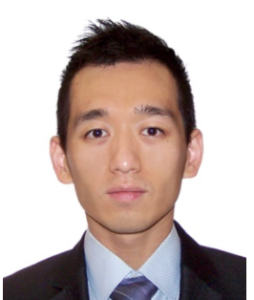Short course: SPH5422-2024
- Home
- Short course: SPH5422-2024
SHORT COURSE
Applied Health Econometrics for HTA
Dates: Every Friday, 19 Jan – 23 Feb 2024
Time: 9am – 5.30pm (SGT)
Format: In-person
Venue: Tahir Foundation Building (NUS MD 1)
Registrations close on 31 Dec, 2023
Course outline
This course will provide you with the analytical and quantitative skills required for conducting applied econometric research. You will be exposed to the various methodology used in empirical research found in academic and policy papers. You will also learn to interpret the results of these econometrics models.
We will study econometric models in which the dependent variable can be binary, continuous, ordinal or count data. We will begin with learning the ordinary least squares (OLS) model and expand our coverage to non-continuous outcomes (e.g. logistic regression models, multinomial logit, ordered logit and probit, count models, two-part models), and quasi-experimental methods (instrumental variable estimation, regression discontinuity, difference-in-difference, fixed and random effects model) to evaluate the impact of public health policies. We will discuss common problems with these methods, techniques for diagnosing and addressing these problems, and selection of the appropriate econometric tools.
Learning objectives
This course will train students to be effective practitioners and consumers of quantitative research methods for policy analysis. This course has a strong applied orientation, so our coverage of econometric theory will be limited to those elements that directly serve the primary goal of enabling students to be functional users of quantitative empirical analysis.
The goal of this course is to expose students to econometrics methods for evaluating the impact of a health policy or program. This goal will be achieved through lectures, discussions, in-class student presentations, analysing problem sets using Stata, and to write a policy evaluation paper. Students will be required to use the methods taught in this course and present the main findings.
Requirement
Background in STATA
Course instructors
 |
A/P Cynthia Chen Dr. Cynthia Chen is an Assistant Professor at the National University of Singapore (NUS)’s Saw Swee Hock School of Public Health, and Fellow at the Schaeffer Center for Health Policy and Economics at the University of Southern California. Her current research focuses on the well-being and older adults, healthcare financing, and the economics of ageing. She is intrigued by how economic, technological, demographic and social changes can affect the burden of care, financing needs and optimal resource allocation in the future. Her research has been supported by the Singapore’s Ministry of Health, Ministry of Education, the US National Institutes of Aging, and the Thai Health Promotion Foundation among others. To date, she has published more than 45 internationally peer-reviewed journals such as The Lancet Global Health, Lancet Healthy Longevity, PNAS, Health Economics, etc on societal ageing, the burden of chronic diseases, and cost-effectiveness research. |
 |
A/P Wang Yi Dr Wang Yi is an Assistant Professor at the National University of Singapore (NUS)’s Saw Swee Hock School of Public Health. His research focuses on understanding the impact of health policies, health interventions, and (early) health technology assessment. Particularly, he is interested in understanding how to promote efficient medical innovation development on the ground and using medical innovation to solve existing healthcare challenges. He has published several papers to understand these issues. He is also actively involved in capacity building in the region, by conducting workshops, to promote the usage of health technology assessment. |
Course fee
|
Category |
Fees inclusive of GST (SGD) |
| Students/LMIC1 | $1438.80 |
| Partners2/NUS staff | $2398.00 |
| Public sector/NGOs | $3597.00 |
| Private sector | $5995.00 |
*Prices stated are inclusive of 9% GST.
1) There are limited slots available for participants under the Student/LMIC category. For the definition of LMIC, it will follow the World Bank’s definition.
2) Partners refer to staff under the NUHS cluster (including NUH, NTFGH, AH, JCH, NUP, National University Cancer Institute Singapore, National University Heart Centre Singapore, National University Centre for Oral Health Singapore, Centre for Innovation in Healthcare), HTAsiaLink & iDSI members.
3) Public sector refers to any government agency, hospital or state university.
4) Private sector refers to any private hospital, university or private company.
Registration
Please scan the below QR code for registration or click here.

For more information on this course, please contact us at hiper@nus.edu.sg.
Registration closes on 31st December, 2023.


